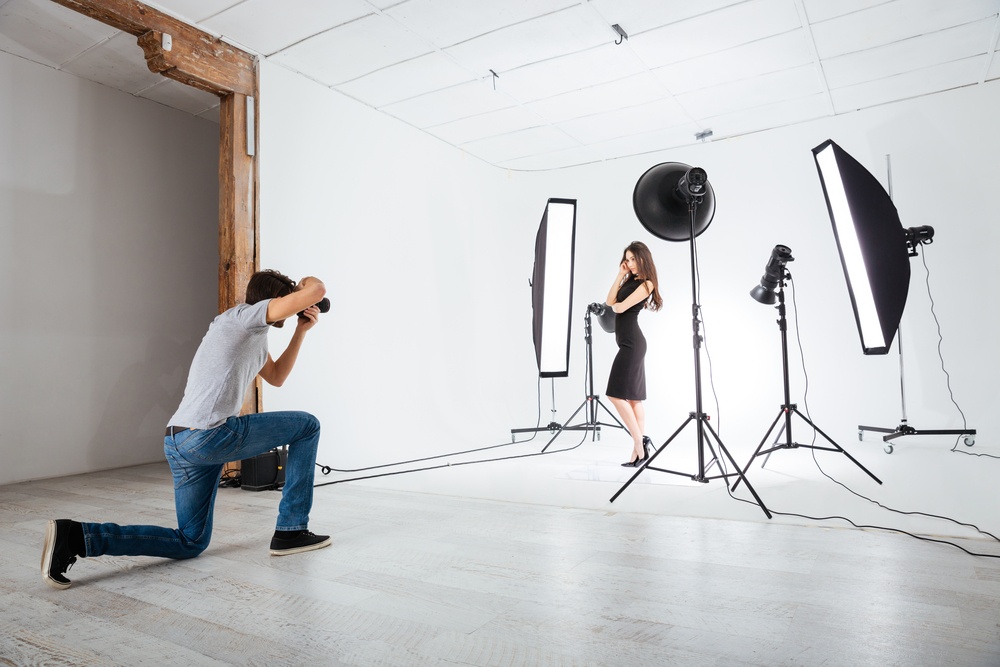Greg is a lover of nature. He loves to do what he knows best, which is photography. He just graduated from a photography training school a couple of months back, but as we speak, he makes just enough money to feed himself. He believes strongly that he can set up his photography studio in six months if he works extra hard.
But, he has a problem. He does not know how to go about it.
In Nigeria, the photography industry is extremely competitive. As much as we have outstanding photographers, we cannot but talk about people who claim to be professional photographers just because they can afford to buy a digital camera.
This is why photographs need to do everything to stand out. Starting a photography studio business is great step to achieve success in photography.
Table of Contents
What is a Photography Studio?
A photography studio is a workspace to take, develop, print, record and duplicate photographs/videos. Photographic studios are often business owned and represented by one or more photographers, possibly accompanied by assistants and pupils, who create and sell their own and sometimes other persons’ photographs/videos.
The studio may have a darkroom, storage space, a studio proper where photographs/videos are taken/shot, and a display room and space for other photography work.
Today, we will take you on a step-by-step guide to starting a professional photography studio in Nigeria.
8 Ways to Start a Photography Studio Business
-
Get proper training
Many people who own photography studios are professionals who are skilled and trained in the business part of photography.
This is why you can’t build and maintain a photo studio without the proper expertise unless you finance the business for someone else to manage. You have to opt for basic photography business training before venturing into the industry.
-
Grow your relationships with clients
Once you are trained and have gotten your basic equipment, like your camera, lens, etc.
You might want to start building relationships and networking with other photographers,
According to Mr Emmanuel Pamilerin, the CEO of Emmanuel Pixels, a successful photography studio based in Lagos, he mentioned that “the importance of developing relationships and networking can never be overemphasised as it is usually difficult to find the first few clients who would hire and pay you for photography jobs.
He also stated that once you get those few clients who are satisfied with your service, it will be easy to build long-term connections with them, and from there, those clients begin to refer you to others.
As more clients contact your photography studio, there will be a significant quantity to keep track of. More than you can do in your brain put in place a method to keep track of all your clients.
-
Get a good location
After you’ve completed your photography training, purchase the basic and appropriate, photographic equipment, and are well-versed in the field, the next step is to hunt for a space to set up your studio.
There are several factors to consider while choosing a location for your photo studio.
- Determine your target audience
You must first determine your target audience and where you may find them. Depending on the type of photography you decide to niche in, whether wedding or portrait photography
Knowing who your target audience is and where they will assist you in deciding on the optimal location for your studio.
- Distance
It is often said that a photographic studio should not be established in a hamlet or distant location. However, knowing who your audience is can help you make the decision.
“It also depends on how you work and the environment you love to work in. You can decide to have your photographic studio in a quiet environment or a popular place in your town. If you deliver a unique and standard job, people will come for your services regardless of where your studio is located,” Mr Pamilerin said
-
Buy photography equipment
Your equipment is a significant long-term investment in your new photography studio.
Apart from your digital camera(DSLRs), you will need space lights, light modifiers, background & stands, Trigger, studio chairs, Reflectors, Tripod, power, a photo printer, Boom mic/radio mic, earphones, extension socket, extra batteries, Prime Lens, External Flash, SD Memory Cards, and Cleaning Kits.
You will also need a laptop and photo editing software.
To begin, you’ll need to get the greatest equipment on the market that you can afford. You can get the other equipment by and by.
Read Also: Simple Phone Photography Tips: How to Take Great Phone Pictures
-
Have an impressive portfolio
Every photographer should invest in a good photography portfolio. Promoting your work and generating interest in your art or business is an excellent approach. As a photographer in the 21st century, your most valuable asset is a stunning and comprehensive photography portfolio.
Instead of a photo book, you may now construct an online photography website that clients can visit on their tablets, smartphones, or laptops.
-
Have a business plan
You need to have a plan. Before a house is built, you must first count the cost.
Although you might not have a well-laid-out plan at the beginning, it is important to have at least a sketch of how you want to run your business.
Creating a business plan is as simple as searching Google for “business plan for a photography business.” Download business plan templates that work for you and use them as guides in creating yours.
Remember, it is essential to have a viable plan in place for how you want to achieve success. This plan will evolve as you gain expertise and learn more about what is and isn’t achievable.
-
Register your business
Every business in Nigeria is a legal entity that must be registered as a Business Name (BN) or a Private Limited Company (LTD). The Corporate Affairs Commission is the government agency in Nigeria in charge of new business registration (CAC).
Registering your business helps you to build credibility and trust as a professional. It gives you access to opportunities from corporate businesses that need your services.
Even if you run a business from home, you must still register the company. Registering your business allows you to open a bank account for your business, file tax reports, and much more.
Read Also: An Ultimate Guide to Become a Successful Photographer in Nigeria
-
Digital marketing plan mindset
To sell your services, you’ll need to understand digital marketing, social media management, and being an exceptional photographer. If you find it difficult to accomplish everything yourself, investing in a monthly contract with a digital marketing agency will be well worth it.
“It’s not just about setting up a studio. You need to know about the business side of photography. That’s why it’s a business, not a hobby,” Mr Pamilerin stated
Marketing is the key to success in the photography business. Spread the word about your company through your personal and professional networks. Attend weddings and other events tailored toward your target demographic.
Conclusion
Even after your business is up and going, you can’t relax. Developing and sustaining connections with clients and corporate purchasers is essential to being a successful photographer. Networking with other photographers is a great way to get client recommendations, learn trade secrets, and perhaps locate a mentor to help you get started.
Interested in more useful tips on career growth, skills development, and business improvement? Join insight whatsapp community to know when the next soap drops. Subscribe to our YouTube channel for insightful tips on entrepreneurship.
About Author
-
Adedokun Boluwatife is a content, Ghostwriter, and Medical student.
She uses storytelling to write compelling articles and books. Writing is the greatest instrument to share what she knows with the world. Proficiency is a skill she always wields.
Latest entries


 Business InsightsFebruary 12, 2024How to do Twitter Advanced Search and What it Means for Your Nigerian Business
Business InsightsFebruary 12, 2024How to do Twitter Advanced Search and What it Means for Your Nigerian Business

